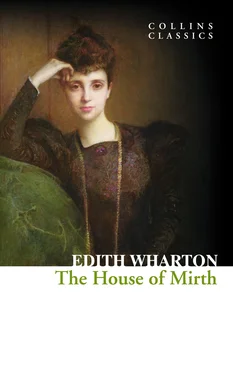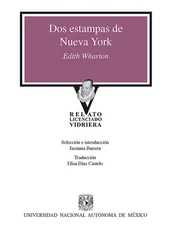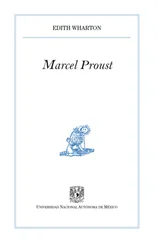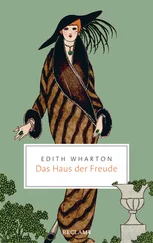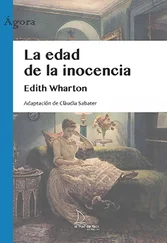From Wharton’s point of view, all three characters are tragic in their own way. May lives through a marriage without real passion; Newland is tormented and then disappointed; Ellen is exiled by her family and never reunited with Newland even though the opportunity arises. It isn’t clear where Wharton places herself necessarily. Perhaps there is something of her in all three personalities, perhaps not, but the overall theme certainly echoes her own situation. Critics were so impressed by the book that Wharton was awarded the Pulitzer Prize in 1921.
The title of the novel is supposed to be satirical, a comment from Wharton on the way polite society wished to be viewed. Wharton had, in 1905, published a forerunner to The Age of Innocence in the form of The House of Mirth . The earlier book, as its title suggests, had been far more vitriolic and mocking in its condemnations and Wharton had apparently wished to redress and make amends with the later book. By the time The Age of Innocence was published the world had witnessed the Great War (World War I) and people’s attitudes had altered. Equality and egalitarianism were taking over from elitism and etiquette. In addition, in 1919 congress bowed to the pressures of suffrage and gave US women the vote. All in all, the USA had changed markedly in the 15 years between Wharton’s two novels and it was now ready to recognize and celebrate the importance of her work.
In some respects Wharton’s theme belongs to the same stable as those addressed by Jane Austen a century earlier in England. Austen’s stories, like Wharton’s, work within a behavioural framework of etiquette which is no longer relevant. Nevertheless, the drama, romance and tragedy is consequently heightened as a result of the limiting strict societal rules.
In 1911, the year that Wharton moved to Europe after the breakdown of her marriage, her novel Ethan Frome was published. A tragic love story, it has at its centre various idiosyncrasies of human behaviour that have significant consequences for the characters in the story.
Set in New England, the eponymous Ethan Frome falls in love with his ill wife’s cousin, Mattie, whom they have employed as a carer. Yet the relationship is doomed, and tragedy ensues. The plot is intricately linked to the polite society in which they live; there are strict rules of behaviour that cannot be broken, and it is an adherence to these that informs the lovers’ actions. Ethan Frome , similarly to the work of other novelists, uses the constraints of social etiquette as a tool for manipulating both characters and plotlines.
Imposing unwritten rules of behaviour on the characters’ sense of morality allows the author to invent emotive situations to engage their readers. The turmoil of Ethan’s mind, full of infidelity, is only worth writing about in a world where such thoughts are deemed unacceptable by the society in which he lives.
Wharton lived in era that was characterized by a seismic shift in societal norms and attitudes, in part due to the turn of the century and the advent of world conflict that it brought. The new world that emerged began slowly to feel more egalitarian, so socially divisive and restrictive rules of etiquette were increasingly disregarded.
In The House of Mirth , published in 1905, we see Wharton deliver another scathing blow to the American upper classes, the social milieu to which she belonged. It proved to be a popular novel, though divided opinion.
Conflicted between marrying for love and marrying for money, the central character, Lily Bart, reveals the precarious nature of the foundations on which the class system – and Lily’s own values – was based. During the course of the novel she makes a series of uncertain moves and tardy decisions that allow her intentions to be misinterpreted by others. The story can be perceived as a comedy of errors, as Wharton highlights the fragility of maintaining one’s respectability in a rarefied environment – after several ill-advised choices, one’s precious social status can be lost for ever.
On publication the New York Times claimed that it was ‘a novel of remarkable power’ and that ‘its descriptive passages have verity and charm, it has the saving grace of humor, its multitude of personages … all have the semblance of life’. Opinions differed, with many readers defending New York’s social elite whom the book criticised at its heart.
Despite this, one of Wharton’s greatest skills was her creation of believable characters and their behaviour and interactions with each other; even though the intricacies of the plot may be fundamentally unrealistic, the reader believes in Lily’s circumstances, actions, and ensuing loss of control.
The novel’s title comes from a line in the Bible, Ecclesiastes 7:4: ‘The heart of the wise is in the house of mourning; but the heart of fools is in the house of mirth.’ Using this reference, Wharton offers the reader a comment on the dichotomy between money and morality, frivolity and gravity.
Contents
Cover
Title Page
Copyright
History of Collins
Life & Times
Book One
Chapter 1
Chapter 2
Chapter 3
Chapter 4
Chapter 5
Chapter 6
Chapter 7
Chapter 8
Chapter 9
Chapter 10
Chapter 11
Chapter 12
Chapter 13
Chapter 14
Chapter 15
Book Two
Chapter 1
Chapter 2
Chapter 3
Chapter 4
Chapter 5
Chapter 6
Chapter 7
Chapter 8
Chapter 9
Chapter 10
Chapter 11
Chapter 12
Chapter 13
Chapter 14
Classic Literature: Words and Phrases
About the Publisher
BOOK ONE
Selden paused in surprise. In the afternoon rush of the Grand Central Station his eyes had been refreshed by the sight of Miss Lily Bart.
It was a Monday in early September, and he was returning to his work from a hurried dip into the country; but what was Miss Bart doing in town at that season? If she had appeared to be catching a train, he might have inferred that he had come on her in the act of transition between one and another of the country-houses which disputed her presence after the close of the Newport season; but her desultory air perplexed him. She stood apart from the crowd, letting it drift by her to the platform or the street, and wearing an air of irresolution which might, as he surmised, be the mask of a very definite purpose. It struck him at once that she was waiting for someone, but he hardly knew why the idea arrested him. There was nothing new about Lily Bart, yet he could never see her without a faint movement of interest: it was characteristic of her that she always roused speculation, that her simplest acts seemed the result of far-reaching intentions.
An impulse of curiosity made him turn out of his direct line to the door, and stroll past her. He knew that if she did not wish to be seen she would contrive to elude him; and it amused him to think of putting her skill to the test.
“Mr. Selden—what good luck!”
She came forward smiling, eager almost, in her resolve to intercept him. One or two persons, in brushing past them, lingered to look; for Miss Bart was a figure to arrest even the suburban traveller rushing to his last train.
Selden had never seen her more radiant. Her vivid head, relieved against the dull tints of the crowd, made her more conspicuous than in a ballroom, and under her dark hat and veil she regained the girlish smoothness, the purity of tint, that she was beginning to lose after eleven years of late hours and indefatigable dancing. Was it really eleven years, Selden found himself wondering, and had she indeed reached the nine-and-twentieth birthday with which her rivals credited her?
Читать дальше
